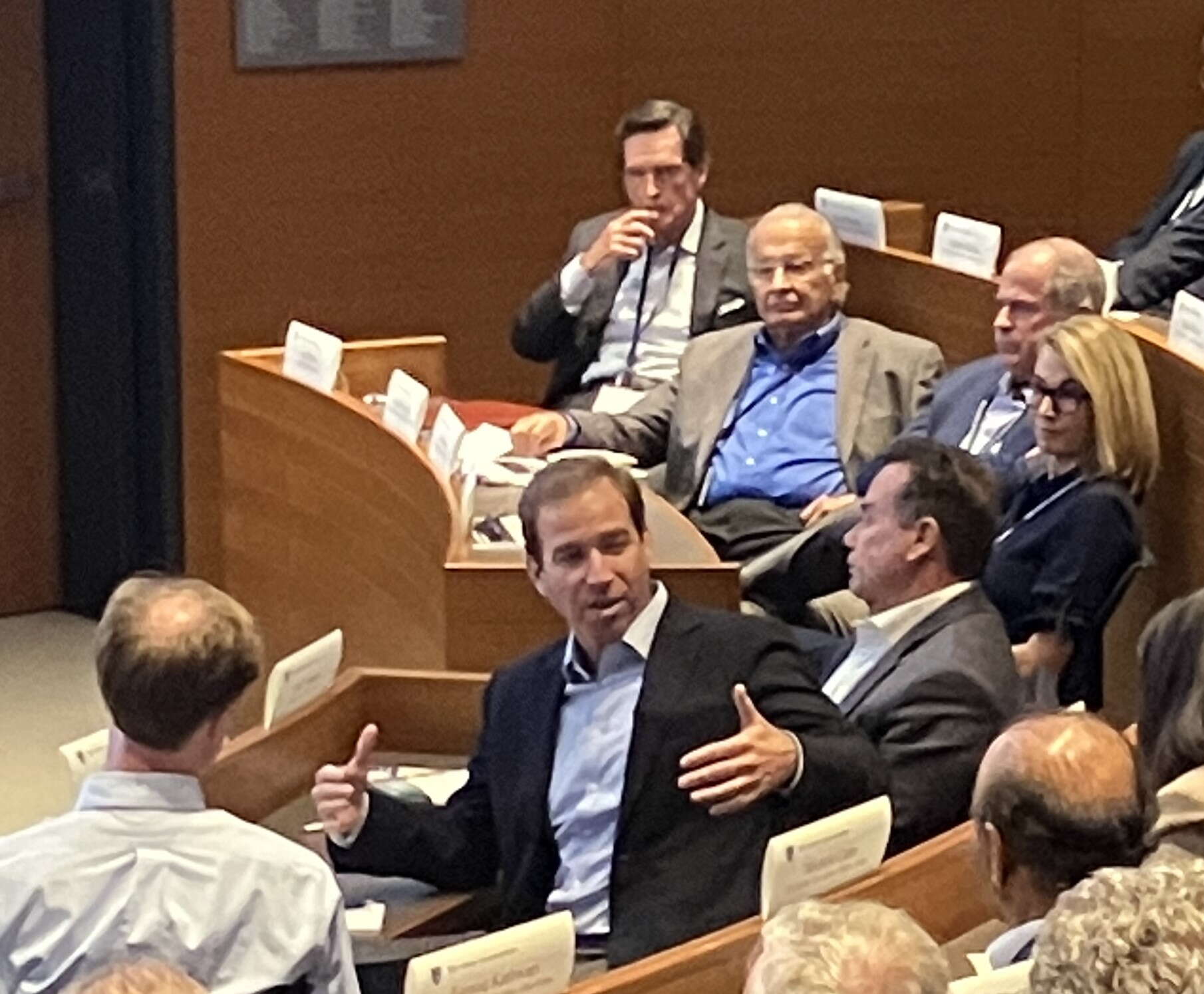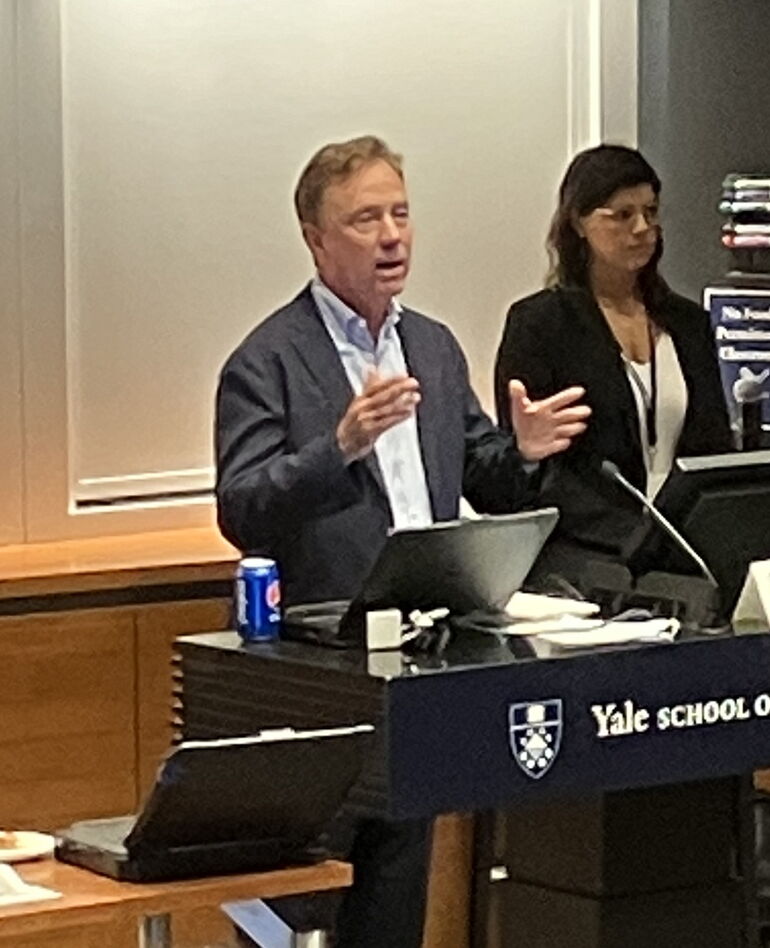
Processing Your Payment
Please do not leave this page until complete. This can take a few moments.
-
News
-
Editions
-
- Lists
-
Viewpoints
-
HBJ Events
-
Event Info
- 2024 Economic Outlook Webinar Presented by: NBT Bank
- Best Places to Work in Connecticut 2024
- Top 25 Women In Business Awards 2024
- Connecticut's Family Business Awards 2024
- What's Your Story? A Small Business Giveaway 2024 Presented By: Torrington Savings Bank
- 40 Under Forty Awards 2024
- C-Suite and Lifetime Achievement Awards 2024
- Connecticut's Health Care Heroes Awards 2024
-
-
Business Calendar
-
Custom Content
- News
-
Editions
View Digital Editions
Biweekly Issues
- April 15, 2024
- April 1, 2024
- March 18, 2024
- March 4, 2024
- February 19, 2024
- February 5, 2024
- January 22, 2024
- January 8, 2024
- Dec. 11, 2023
- + More
Special Editions
- Lists
- Viewpoints
-
HBJ Events
Event Info
- View all Events
- 2024 Economic Outlook Webinar Presented by: NBT Bank
- Best Places to Work in Connecticut 2024
- Top 25 Women In Business Awards 2024
- Connecticut's Family Business Awards 2024
- What's Your Story? A Small Business Giveaway 2024 Presented By: Torrington Savings Bank
- 40 Under Forty Awards 2024
- C-Suite and Lifetime Achievement Awards 2024
- Connecticut's Health Care Heroes Awards 2024
Award Honorees
- Business Calendar
- Custom Content
Economic forum speakers urge business, political leaders to promote more housing, “culture of growth”
 PHOTO | LIESE KLEIN
Gov. Ned Lamont speaks at the Connecticut Economic Development Forum at the Yale School of Management on Sept. 7, 2022.
PHOTO | LIESE KLEIN
Gov. Ned Lamont speaks at the Connecticut Economic Development Forum at the Yale School of Management on Sept. 7, 2022.
Jobs are being created. Companies are expanding. Young people are staying and even moving in from other places.
In a time of economic good news, the state needs to market its assets, focus on creating a “culture of growth” and build more housing, attendees at the Connecticut Economic Development Forum concluded on Wednesday night.
The event, hosted by the Yale School of Management and its “master convener,” senior Associate Dean for Leadership Jeffrey A. Sonnenfeld, brought together dozens of the state’s top business and political leaders.
Mayors of three of the state’s largest cities attended, along with biotech, manufacturing and insurance CEOs, top developers, and nonprofit leaders like Yale New Haven Health CEO Chris O’Connor.
Sonnenfeld first presented data with the good news: A $4 billion state budget surplus, record venture capital for state startups, a doubling of graduates in STEM fields and a 10% bump in industrial productivity compared to pre-pandemic levels in the state.
The bad news: Connecticut still lurks near the bottom on many indexes of competitiveness and business climate.
Ongoing budget challenges like the state's $95 billion in unfunded liabilities continue to threaten future growth, warned Bob Patricelli, co-chair of the former Commission on Fiscal Stability and. Economic Growth in Connecticut, an advisory group formed in 2017.
“We need to keep at this,” Patricelli said of fiscal discipline. “The governor will have to double down on improving the state’s competitive position.”
Gov. Ned Lamont told the group that the state is doing its best to hold the line on spending and bring new businesses to the state, speaking of a meeting earlier Wednesday with a “major European life sciences company” thinking about moving to the state.
“Question one, two, and three was workforce,” Lamont said. “There's a global search for talent.”
“I've got 100,000 jobs I can't fill in the state right now,” Lamont said. “We're working very closely with the business community to create the next-generation workforce.”
CEOs present spoke of ongoing challenges around the state’s worker shortage, with industries from healthcare to tourism facing staffing difficulties, on top of the state’s 3.7% unemployment rate, down from 5.3% in January.

But the big-city mayors asked the state and business community to take a stronger role in addressing one workforce challenge: New housing in all areas that is affordable to blue collar and younger workers.
“There's a role for the business community to say we need to grow more, we need to build more,” Hartford Mayor Luke Bronin said. “It’s a constraint on our ability to stay and grow in Connecticut, because I think a lot of Connecticut doesn't see and hear it that way. There's room for the business community to stand up and say, ‘we need that done.’ That is pro-business. Housing development is pro-business.”
Housing is a national issue, with the U.S. “underbuilt” by 8.5 million homes, according to Greg Schwartz, CEO of Tomo, a Stamford-based mortgage fintech that has raised $70 million in seed funding.
“There's only one way to house 8 million people – to go up,” Schwartz said. “And that's not political. That is just pure economic sense.”
Schwartz, a resident of New Canaan, cited recent news accounts of the wealthy town’s opposition to a proposed apartment complex which includes 31 units set aside for those with moderate incomes. “We're feeling bullied in town,” Schwartz said. “And when people feel bullied, they fight back and you make no progress.”
But the responsibility of housing the next generation of workers can’t lie solely with the cities and high-rise development, New Haven Mayor Justin Elicker countered.
“If we don't bully you, I don't know how we see real movement on affordable housing around the state," Elicker said. He cited a recent measure that allowed cities and towns to opt out of allowing accessory dwelling units, intended to allow for increased housing density. All municipalities but New Haven and Guilford in the greater New Haven area have opted out, killing hopes for more housing around the booming urban core.
“I think we need to de-politicize this issue and actually take some meaningful steps in the suburban communities to offer more options,” Elicker said. “We really need to see that kind of movement across the state – cities can't do this alone.”
Key to more housing and sustaining Connecticut's economy is creating a “culture of growth” in the state to welcome new residents, said David Lehman, commissioner of the Connecticut Department of Economic and Community Development.
“States that have strong GDP growth, job growth, they're growing their populations,” Lehman said. “There's a culture of growth and welcoming. Connecticut, in my opinion, needs to do more of that, do a better job of that – welcoming that type of responsible development.”
Contact Liese Klein at lklein@newhavenbiz.com.

2022 Giving Guide
This special edition informs and connects businesses with nonprofit organizations that are aligned with what they care about. Each nonprofit profile provides a crisp snapshot of the organization’s mission, goals, area of service, giving and volunteer opportunities and board leadership.
Learn more
Subscribe
Hartford Business Journal provides the top coverage of news, trends, data, politics and personalities of the area’s business community. Get the news and information you need from the award-winning writers at HBJ. Don’t miss out - subscribe today.
Subscribe
2024 Book of Lists
Delivering Vital Marketplace Content and Context to Senior Decision Makers Throughout Greater Hartford and the State ... All Year Long!
Read Here-
2022 Giving Guide
This special edition informs and connects businesses with nonprofit organizations that are aligned with what they care about. Each nonprofit profile provides a crisp snapshot of the organization’s mission, goals, area of service, giving and volunteer opportunities and board leadership.
-
Subscribe
Hartford Business Journal provides the top coverage of news, trends, data, politics and personalities of the area’s business community. Get the news and information you need from the award-winning writers at HBJ. Don’t miss out - subscribe today.
-
2024 Book of Lists
Delivering Vital Marketplace Content and Context to Senior Decision Makers Throughout Greater Hartford and the State ... All Year Long!
ABOUT
ADVERTISE
NEW ENGLAND BUSINESS MEDIA SITES
No articles left
Get access now
In order to use this feature, we need some information from you. You can also login or register for a free account.
By clicking submit you are agreeing to our cookie usage and Privacy Policy
Already have an account? Login
Already have an account? Login
Want to create an account? Register
Get access now
In order to use this feature, we need some information from you. You can also login or register for a free account.
By clicking submit you are agreeing to our cookie usage and Privacy Policy
Already have an account? Login
Already have an account? Login
Want to create an account? Register






0 Comments